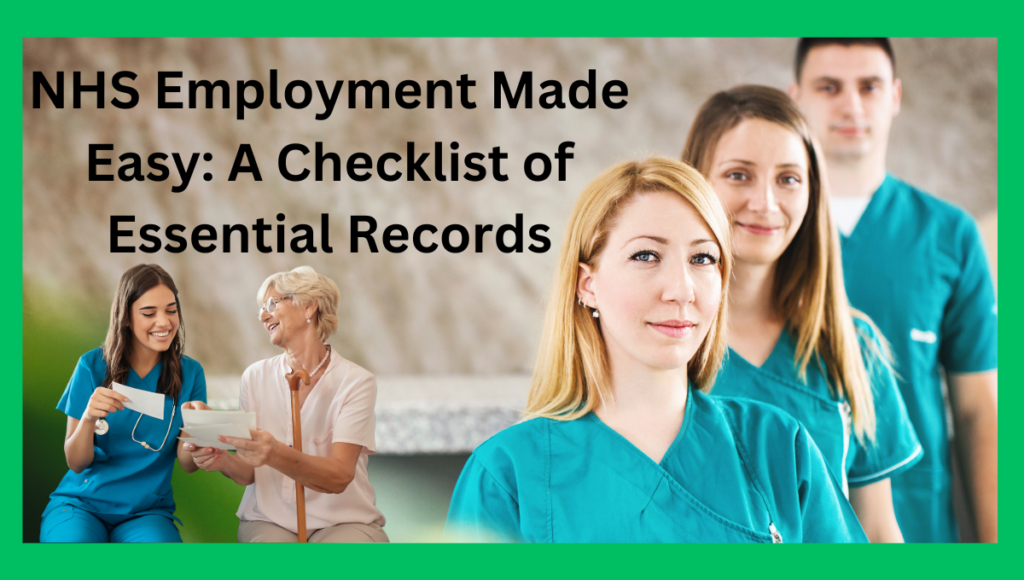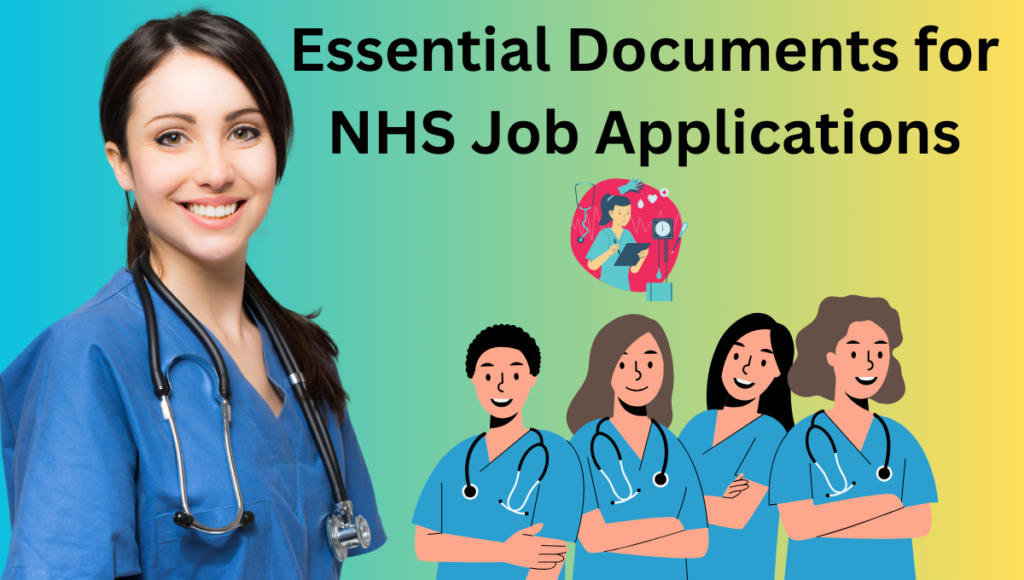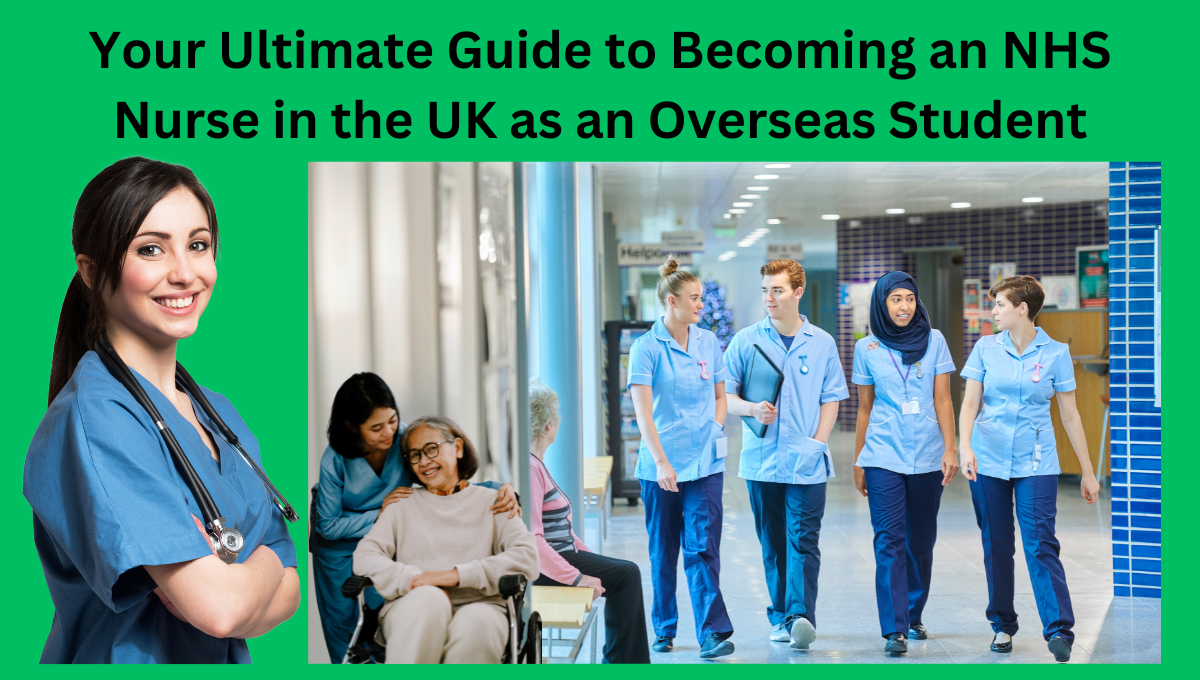Your Ultimate Guide to Becoming an NHS Nurse in the UK as an Overseas Student
Article Outline H1: Introduction
An overview of UK NHS nursing positions
International nurses’ significance in the NHS workforce
The advantages of being a UK NHS nurse
H2: prerequisites for eligibility
Qualifications in education
H3: Requirements for nursing degrees
H3: Specialized nursing specialties (if any)
Fluency in the English language
H3: Requirements for OET and IELTS
H3: Required minimum scores
The Nursing and Midwifery Council (NMC) registration
H3: Knowing how to register with the NMC
H3: Documents needed
H2: Examining Nursing Roles in the NHS
Nursing job types that are available
Recognizing the needs and job descriptions
Selecting the position that best suits your skill set
H2: The Process of Application
Creating a polished resume and cover letter
Using the official NHS portals to find employment opportunities
H3: The NHS Jobs website
H3: Organizations that hire foreign nurses
Putting in applications
Knowing how to prepare for an interview
H2: Getting through the NMC Competency Test (ToC)
An overview of OSCE and CBT
Advice on surviving the CBT
Getting Ready for the OSCE
Practice exams and study materials
H2: Immigration and Visa Procedures
Getting to know the skilled worker visa
Documents needed to apply for a visa
Managing sponsorship and visa fees
H2: Process of Relocation
Getting ready to relocate to the UK
H3: Making accommodations
H3: Banking and money management
Getting ready for cultural change
H2: Onboarding and Beginning Work
What to anticipate during the first week
Recognizing NHS workplace culture
Possibilities for development and progress
H2: Typical Obstacles and How to Get Past Them
Getting used to a new medical system
Handling the balance between work and life
Looking for resources and assistance
H2: Advantages of Being employed by the NHS
Competitive pay and benefits
Opportunities for professional growth
Initiatives for work-life balance
H1: Findings
An overview of the detailed procedure
Motivation for potential candidates
Overview
One of the most reputable healthcare systems in the world is the National Health Service (NHS) in the United Kingdom. You can work with a diverse team, get a competitive salary, and have access to top-notch professional development as an international nursing student. Due to shortages in the workforce and rising healthcare needs, international nurses are essential to the NHS workforce. From eligibility to settling into your career, this guide will help you comprehend the entire process.

- Conditions for Eligibility
A. Qualifications for Education
You must have a nursing degree from an accredited university in order to be eligible for NHS nursing positions. Additional credentials could be necessary for specific positions like pediatric or mental health nursing. Your degree must adhere to the Nursing and Midwifery Council’s (NMC) requirements if it was earned outside of the United Kingdom.
B. Proficiency in the English Language
International nurses must prove their English language skills on tests such as these, according to the NMC:
Academic IELTS: A minimum of 7.0 overall, including at least 6.5 in speaking, writing, reading, and listening.
OET: All units must have a minimum grade of B. This guarantees that you can interact with patients and coworkers in an efficient manner.
C. Enrollment in the NMC
For your application, the NMC registration procedure is essential. It includes:
Checking your nursing credentials.
presenting proof of fluency in English.
submitting documentation for identification verification. After being accepted, you will be given your NMC PIN, which will allow you to practice lawfully as a nurse in the UK.
- Examining Nursing Roles in the NHS A. Nursing Role Types
The NHS provides a variety of nursing positions, including community, mental health, pediatric, and adult nursing. Every role has its own set of duties and difficulties.
B. Comprehending Job Descriptions
Examine job descriptions carefully to make sure your interests and talents align. Pay attention to specifics such as the job location, credentials, and necessary experience.
C. Selecting the Appropriate Position
When choosing a position, take your passions, areas of expertise, and professional objectives into account. For instance, pediatric nursing can be a wonderful fit if you like dealing with kids.
- The Application Procedure
A. A polished resume and cover letter
Make a resume that emphasizes your training, clinical background, credentials, and abilities. Your cover letter should highlight your qualifications for the NHS and be customized for the particular position.
B. Locating Employment Possibilities
Look for positions on:
The webpage for NHS Jobs: The official website for NHS job openings is this one.
reputable hiring companies with a focus on foreign nurses. These websites guarantee that the jobs you’re applying for are genuine.
C. Applying for Jobs
Verify your application again for accuracy, and make sure all necessary files are included. Lack of information may cause the procedure to drag on.
D. Getting Ready for the Interview
Get ready for interviews by:
looking up typical interview questions for the NHS.
putting your answers to competency-based questions into practice.
displaying an understanding of NHS ideals and policies.
- Completing the NMC Competency Test (ToC)
A. CBT and OSCE Overview
There are two sections to the ToC:
The computer-based test, or CBT, evaluates your theoretical understanding.
Your practical nursing abilities are assessed by the OSCE (Objective Structured Clinical Examination).
B. CBT Advice
Examine the NMC’s exam plan.
Make use of online practice exams.
Pay attention to UK-specific medical procedures.
C. Getting Ready for the OSCE
Get acquainted with clinical situations.
Practice tasks such as giving medication and evaluating patients.
For advice, view videos on OSCE preparation.

- The Immigration and Visa Procedure
A. Knowledge of the Visa for Skilled Workers
You can lawfully work in the UK if you have a skilled worker visa. A Certificate of Sponsorship (CoS), typically supplied by the NHS trust, is required from your employer in order to apply.
B. Necessary Records
a passport and identification documents.
Details about NMC registration.
A letter of employment offer from the NHS.
Evidence of fluency in the English language.
C. Handling Sponsorship and Visa Fees
The NHS frequently sponsors visas, paying for all or part of the associated expenses. Make sure you are aware of the conditions of your sponsorship.
- The Process of Relocation
A. Organizing Your Transition
Accommodation: Before you move, find temporary lodging close to your place of employment.
Finances: To receive your salary, open a bank account in the UK. Set up money for upfront costs like food and rent.
B. Adjustment to Culture
It may take some time to get used to the healthcare system and UK culture. To make your transfer easier, learn about local traditions, workplace etiquette, and NHS procedures. - Onboarding and Beginning Work
A. Expectations for the First Week
During orientation during your first week, you will learn about your individual position, NHS policies, and patient safety standards.
B. Recognizing Culture at Work
The NHS encourages compassion, teamwork, and communication. Establishing a good rapport with coworkers is essential for a successful start.
C. Prospects for Growth
To further your career, take advantage of NHS training programs, mentorship, and continuing education options.
- Typical Obstacles and How to Get Past Them
A. Getting Used to a New Medical System
Learn about UK recommendations, including infection control procedures and the NICE guidelines. When necessary, ask senior staff for advice.
B. Keeping Work-Life Balance in Check
Working shifts can be taxing. Carefully consider your schedule to prevent burnout and preserve a positive work-life balance.
C. Looking for Assistance
International nurses can attend peer groups and counseling through the NHS’s support networks.
- Advantages of NHS Employment
A. Competitive Benefits and Pay
Starting pay for NHS nurses is around £27,000 annually, plus benefits including paid time off and a pension plan.
B. Opportunities for Professional Development
The NHS makes investments in its employees by offering leadership courses, training programs, and chances for specialization.
C. Balance between Work and Life
In order to ensure a good balance between work and personal life, the NHS supports staff well-being and encourages flexible working hours.
- Final thoughts
As an international student, the path to becoming an NHS nurse may appear difficult, but it is possible with perseverance and good preparation. You can begin your fulfilling career in the UK healthcare system and confidently navigate the process by following this guidance step-by-step.
FAQ 1. How much does an NHS nurse in the UK typically make?
Starting pay varies based on experience and expertise, ranging from £27,000 to £32,000 per year.
- If I have a skilled worker visa, may I bring my family with me?
Under certain visa conditions, you are permitted to bring dependents like your spouse and kids. - Does applying to be an NHS nurse have any age restrictions?
No, as long as you fulfill the requirements, there are no age limitations. - How much time does it take to register with the NMC?
Depending on how soon you submit the necessary paperwork, it usually takes three to six months. - What kind of assistance does the UK offer foreign nurses?
The NHS provides financial aid for relocation, cultural adaptation resources, and mentorship activities.
Please note: If you want nursing wellness and patient care-related items, then click below my website link and get items easily: http://diseasewellnessbounque.in

